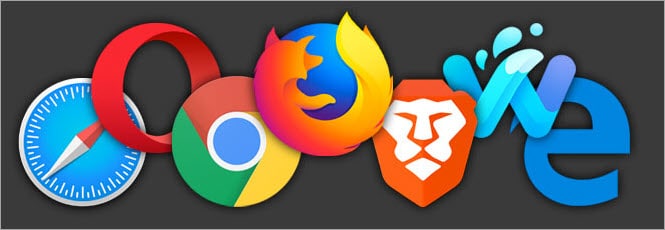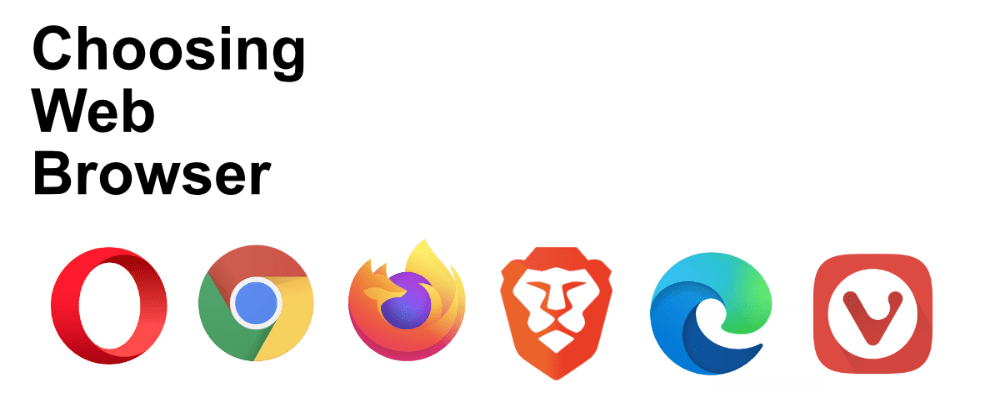
Microsoft Edge
Performance
As a Chromium-based Browser, Edge shares the same source code of Browsers like Chrome, etc. That makes it a rocksteady Browser which responds very well and remains quite low in resourses. For newer devices, at least. For older ones, is a bit demanding especially in RAM, in multi-tabbing and multi-tasking. But this is expected. All the modern Browsers are coming more and more resource-hungry, year by year. So, it isn’t a demanding beast, but still needs some power, in order to enjoy it, at its full threshold. But even in older Systems for VideoStreaming, etc, could stand its own ground. For the most of us, its big disadvantage is Bing Search. Dear MS, you should really try more.
In general, Edge could have been better, but it isn’t far behind the others of this list. Still should improve a bit.
Score: 8/10
Security
Privacy
Pros
- Stable
- Good Security Level
- Easy to use
- Great for Windows 10/11
Cons
- Should be more privacy-oriented
- Bing Search needs improvement
- Needs some tricky customisations for addons
Google Chrome
Google’s Browser is the most popular, nowadays. It is based on Chromium, as well. You can say that, is the partly closed-source sibling of Chromium. It is very customisable, very steady and is offered nearly for every OS. It came a long way and topped the top for quite some time, now.
Let’s see how it performs in the three categories I tested it.
Performance
Its ui isn’t changed much, after since it was first introduced back in the mid 00’s. It doesn’t win with its appearance, but it’s steady. Maybe, is heavy for older or low-specs Systems, but is responsive and performance-wise. Still uses a quite impressive amount of Ram and I could say is resource-hungry. But it is the most rocksteady Browser of the ones I tested. If you won’t overdo with multi-tabbing and multi-tasking it won’t let you down. Plus it has a wide variety of add-ons and features to customise it even further. Well done, Google for this.
Score: 9/10
Security
Google is very careful with its Browser Security. Its integrated sandboxing and Site isolation works very well. Still some shady tactics can trick it, unfortunately. But its Security features like Security Check and Reset, can save the day. Considering the fact that you can easily install Security add-ons and use some safe practices it scores even better. Out of the box, it does what it should and you can trust it.
Score: 9/10
Privacy
You know that we are talking about Google, right? Privacy and Google never were friends. You need to put some extra effort to gain a good Privacy Level. Third-party cookies, opt-outs and rejects are some of the most important steps you should take. Floc feature didn’t seem promising, as well. Sorry, I can’t trust my personal data to Google. At least, for now.
Score: 7/10
Pros
- Rocksteady
- Secure
- High performance
- Easy to use
- Highly customisable
Cons
- Privacy should get better
- Resource-hungry
Mozilla Firefox
Mozilla’s Browser, was once the most popular. Until Google’s dominance, at least. Still is one of the Browsers which didn’t adopt Chromium base. Moreover, some Browsers are Firefox-based. Not as popular like the Chromium-based ones, but still they exist. And they really should. Firefox is a good browser which is Privacy-oriented. But is Privacy only, enough?
Performance
Firefox performs quite well, but isn’t as steady like the other Chromium-based Browsers. Also, gives an impression of unresposiveness. Moreover, time to time has issues like hardware acceleration incompatibilities, etc. In general, doesn’t impress with its performance. But it is highly customisable and with a little search you can fix many issues, if occur. Some settings need some digging, like Javascript enabling/disabling, etc. It supports a wide variety of add-ons, as well. It really needs improvement and I hope it would.
Score: 7½/10
Security
Firefox does a decent job on fighting the bad guys. Security features work well. Unfortunately, needs improvement. From all the Browsers, I tested it scored lower than all of them, especially in scam urls. I believe that its privacy settings, might played a little part. Just a thought. You can trust it, but you should be careful if you click on everything, without being cautious. Mozilla Foundation, please consider some improvement.
Score: 8/10
Privacy
Here comes Firefox’s Rising. Privacy is really important for Mozilla Foundation and its Browser represent it very well. Combining with add-ons and DuckDuckGo you could maximize its Privacy Level even further. It is the ideal Browser for private tasks, E-Banking, etc. Between all the Browsers I have tested, it loses the first place only by another Firefox-based Browser. Good Job, Mozilla!
Score: 9/10
Pros
- High Privacy Level
- Wide variety of add-ons
- Frequent Updates
- Uses its own Source Code
Cons
- Performance could get better
- Security needs improvement
- Some settings are hidden for no reason

Epiloque
The first part of this article is about three of the most popular Browsers. I am sure that almost anyone of us, use or used to use, at least one of them. We saw the pros and cons of each one and we learnt that nothing is perfect, as is expected. The second part would be about OperaGX, Vivaldi and TorBrowser Bundle. Stay tuned!
As always, I would like you to write your thoughts about the article and if you use another Browser. You can also suggest your Browser Tier List or another one you would like to get tested either in the comments section or our Forum. Your suggestions and support are really important to us. If you’d like to read part two, is available here.
Disclaimer: Browser add-ons while are useful and occasionally necessary, please be very careful when you install them. Some might be dangerous, collecting personal info or sold to another Company/developer who may change their policy. Moreover, note that many of them modify Browsers settings that could result in more Security flaws. And by the time add-ons are extra lines of code they have their own Security flaws. It is advisable to be careful, when you choose to install add-ons.

